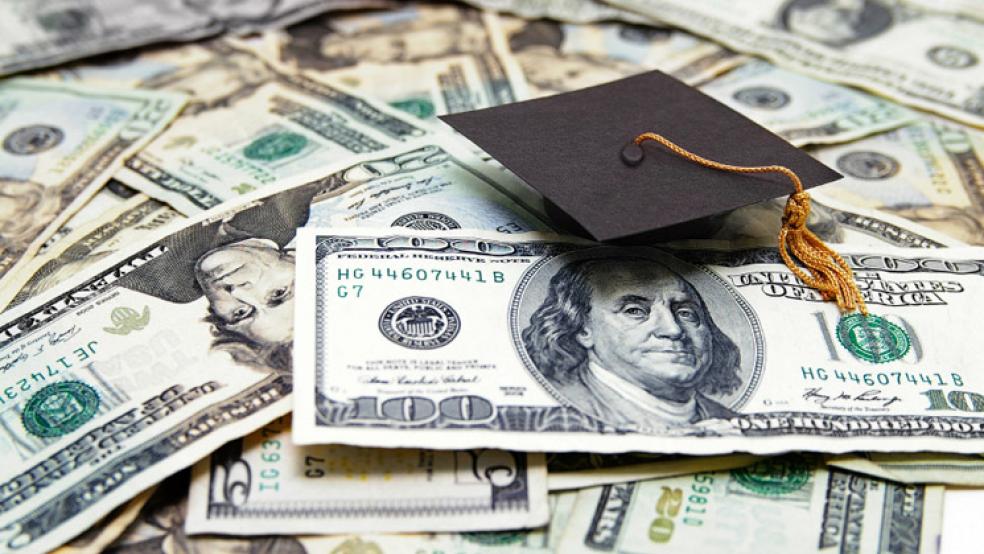The latest, greatest aphrodisiac on college campuses across the nation is . . . socialism? According to Fox News pollster Frank Luntz, asked recently about the sudden revival of the political ideology: “If you are a young person and you tell someone of the opposite sex that you are a socialist, you are much more likely to get some action at the end of the evening.” Though pundits may disapprove, it seems that socialism is cool. Apparently, a whiff of Marxism can get you hookups and more.
It’s been about six years since I graduated, but I’m fairly confident that this is a bit overblown. Yet socialism does seem to have become the political orientation du jour among voters of a certain (read: young) age. As its popularity has grown, the response from older, purportedly wiser politicos has been fascinating – first mainly dismissiveness, then confusion and now, as the Bernie Sanders campaign improbably persists, genuine alarm.
[The new Democratic Party proposal to rival Bernie Sanders’s socialism]
So far in the Democratic presidential primary, 1.5 million people under 30 have voted for Sanders more than double the number who have cast a ballot for either Hillary Clinton or Donald Trump. A January YouGov poll asked respondents whether they had a “favorable or unfavorable” view of socialism and capitalism. While capitalism rated significantly higher overall, those younger than 30 gave socialism higher marks: Forty-three percent viewed it very or somewhat favorably, compared with only 32 percent for capitalism.
This seeming rejection of America’s golden key provides a perfect opportunity for older commentators to trot out their shopworn millennial skepticism. The youth are so naive! They’ve forgotten what communism really means. They’ve never witnessed the spirit-crushing methods of autocratic regimes or the grinding failure of centrally planned economies. They don’t even know what socialism is! They’ll grow out of it.
There is some truth to this. Most young voters did not live through the Cold War; for many millennials, the Soviet Union is little more than a grim backdrop for bad action films. But it’s incredibly patronizing to say that newly passionate young socialists are simply too childish to understand their own beliefs. Pundits attempting to change minds in this manner will find their efforts wildly ineffective.
And in reality, many of these dismissive critics played a role in decoupling socialism from its negative connotations. Since 2008, the right has waged war against Barack Obama with what it thought were obviously damaging terms: “He’s a raging leftist!” “A communist organizer!” “He’ll redistribute our income!” “Obamacare is socialism!” But most millennials’ associations with President Obama were (and continue to be) positive, especially in contrast to what seemed to be an ineffective and often willfully obstructionist governing class. A young president with a multicultural background touting hope, change and unity? If that was socialism, it didn’t sound so bad.
More than anything, however, simple economics have pushed a younger generation of voters to embrace what used to be a dirty word.
The past 10 years – for many millennials, the formative years of adulthood – have eroded the credibility of economic liberalism. The financial crisis and recession weakened youths’ faith in markets, exposed deep levels of inequality and alerted many young people to the fact that their futures were likely to be far less bright than their parents’ were at the same age. Yet they were also told that the solution to these problems was more liberal capitalism.
But those solutions haven’t delivered, and their failure to do so is perhaps the most fundamental political influencer of our time. Underemployment, excessive debt, out-of-reach health care and delayed life goals are young peoples’ defining concerns, and the traditional assumption – that free markets and limited state intervention lead to good outcomes – just doesn’t ring true to them.
[Democratic socialism might be inevitable in America, even if Bernie Sanders loses]
Is it any wonder that young people seek answers elsewhere? And with the term sundered from its negative antecedents and newly associated with potentially positive policy measures, why not be a socialist?
Indeed, for many millennials, “socialism” is simply shorthand for “vaguely Scandinavian in the best way” – free health care, free education and subsidized child care, a state that supports its citizens rather than leaving them at the mercy of impersonal corporations bent on profit. And if this vision is championed by a candidate whose establishment-rebel status renders him more trustworthy than his competitors, so much the better!
When Sanders’s critics raise the alarm about socialism’s return, they paint a picture of collectivization, supply shortages and totalitarian regimes. But in fact, the socialism that most millennials want is simply a return to a more muscular form of traditional liberalism, one that would have felt right at home in the administration of FDR.
Pundits will continue to pontificate about how young people don’t remember the bad old days. But the pundits aren’t offering new solutions for the problems of our time. With no other options forthcoming, it shouldn’t be surprising that millennials are looking with fresh eyes at the remedies of the past. And while socialism may be trending today, it’s quite possible that it won’t be where large numbers of millennials end up. The question is whether the next idea will be better or worse.
This opinion piece was originally published in The Washington Post. Read more at The Post:
- Sean McElwee: Millennials are significantly more progressive than their parents
- Ron Radosh: How an obscure socialist text from the ’80s predicted Bernie Sanders’s rise
- Bhaskar Sunkara: The ‘Sanders Democrat’ is paving the way for the radical left
- Emily Ekins: Millennials like socialism — until they get jobs





